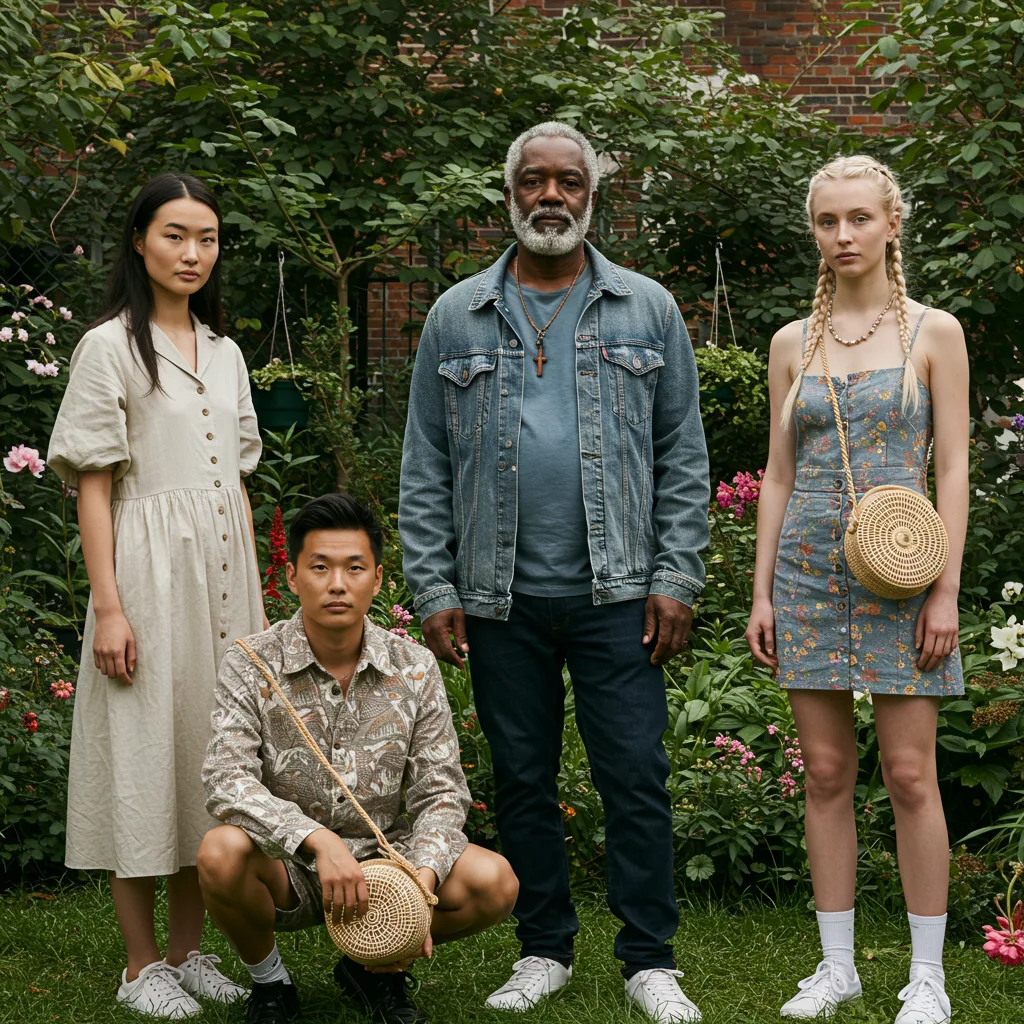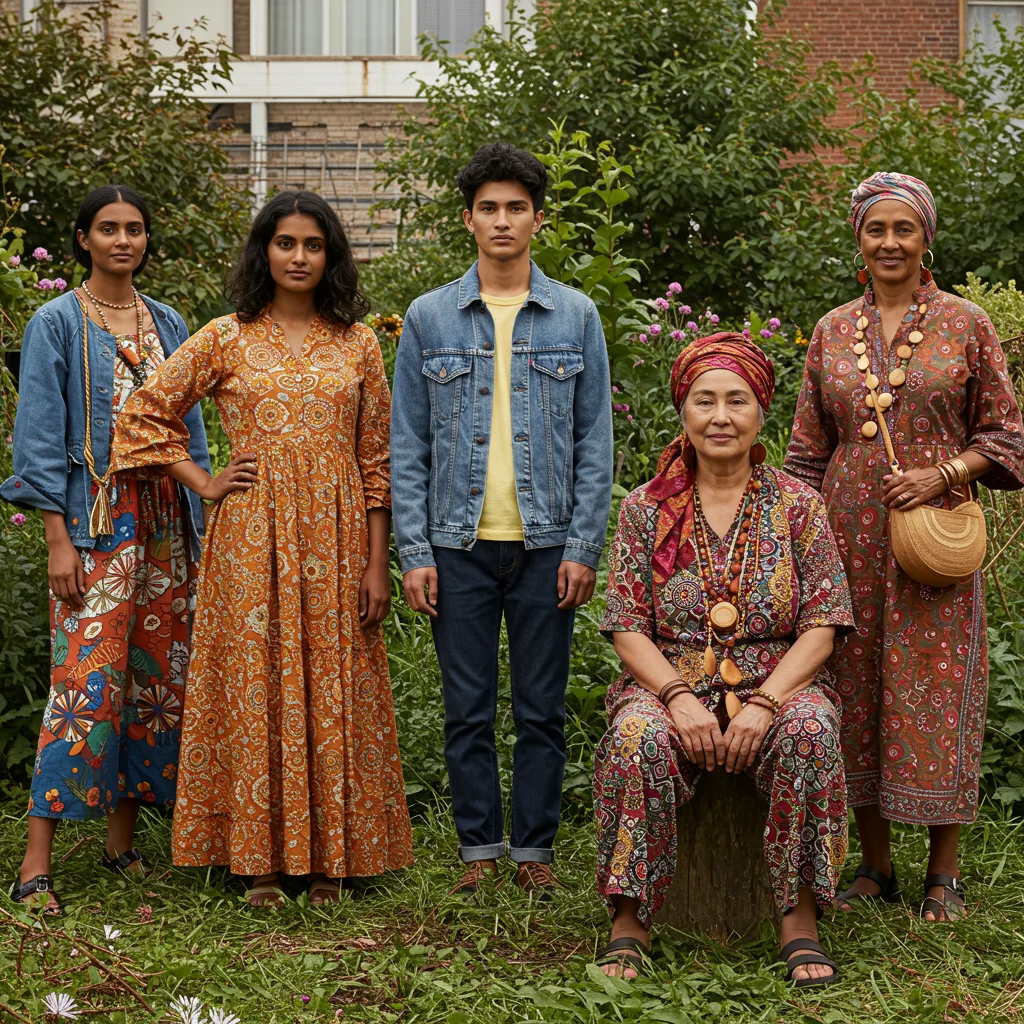Sustainable Fashion Trends: Ethical Clothing Guide for 2025
Sustainable fashion trends are shaping the future of clothing in the USA for 2025, driven by growing consumer demand for ethical options. With the global sustainable apparel market projected to reach $200 billion by 2025, per the McKinsey & Company, Americans are increasingly choosing eco-friendly fabrics and fair trade practices. For instance, secondhand clothing sales surged 25% in 2024, according to the ThredUp. Therefore, this guide, crafted for EcoDweller.com, highlights the top trends and tips for embracing ethical clothing this year.

Why Sustainable Fashion Trends Matter in 2025
Ethical clothing addresses environmental and social concerns. Fast fashion’s carbon footprint dropped 15% in 2024 due to sustainable shifts, per the EPA. Moreover, consumers prioritize transparency, with 70% willing to pay more for eco-friendly brands, as noted by the Nielsen. Additionally, these trends support local economies and reduce waste.
Benefits of Sustainable Fashion Trends
- Environmental Protection: Reduces water and chemical use.
- Fair Wages: Supports ethical labor practices.
- Durability: Offers longer-lasting garments.
- Consumer Appeal: Aligns with eco-conscious values.
- Waste Reduction: Promotes recycling and upcycling.
Top Sustainable Fashion Trends for 2025
These trends define ethical clothing in the USA this year.
1. Organic Cotton Dominance
Organic cotton, free of pesticides, grew 20% in 2024, per the Textile Exchange. Brands like Patagonia lead with affordable options.
2. Secondhand Chic
Thrifting and resale platforms saw a 25% sales boost, per ThredUp. Vintage stores offer unique, sustainable finds.
3. Biodegradable Fabrics
Materials like hemp and Tencel rose 15% in use, according to the FashionUnited. They decompose naturally, reducing landfill waste.
4. Upcycled Designs
Upcycled clothing gained 10% market share, per the GlobalData. Designers transform old fabrics into new styles.
Tip: Shop Secondhand First
Check local thrift stores or online platforms like Poshmark for sustainable finds.
5. Transparent Supply Chains
Brands disclosing sourcing increased 30%, per the Sustainable Fashion Academy. Look for certifications like Fair Trade.
Cost Comparison of Sustainable vs. Fast Fashion
| Category | Sustainable Clothing | Fast Fashion | Long-Term Value |
|---|---|---|---|
| T-Shirt | $30–$50 | $5–$15 | 5+ years |
| Jeans | $80–$150 | $20–$40 | 7+ years |
| Dress | $60–$120 | $15–$30 | 6+ years |
How to Adopt Sustainable Fashion in 2025
Embracing these trends is straightforward. Start by auditing your wardrobe with the Good On You app. Next, buy from certified brands via Ethical Consumer. Then, donate old clothes to Salvation Army. Additionally, learn mending skills from the Sew Essential.
Tip: Mend Instead of Replace
Use a $10 sewing kit to extend garment life.
Case Study: A Sustainable Wardrobe Transformation
In 2024, a New York resident switched to ethical clothing, spending $300 on organic cotton and upcycled items from Everlane. They saved $150 annually by avoiding fast fashion, per their Good On You analysis, proving long-term value.
Challenges of Sustainable Fashion Trends
Adoption faces hurdles. Higher costs deter some, though durability offsets this. Moreover, limited availability requires research. For instance, the Fashion Revolution offers resources to navigate these issues.
Frequently Asked Questions
What are sustainable fashion trends for 2025?
Organic cotton and secondhand chic lead. Check our sustainable living guide.
Is ethical clothing more expensive?
Initially, yes, but it lasts longer. See our cost table.
Where can I buy sustainable fashion?
Try Patagonia or ThredUp. Visit Ethical Consumer for more.
Conclusion
Sustainable fashion trends offer ethical clothing options for 2025, blending style with responsibility. From organic fabrics to upcycling, these choices benefit the planet and wallet. For example, starting with secondhand buys maximizes impact. Visit EcoDweller.com for more, including our green home trends and eco-friendly car insurance guides. Ready to go green? Share your journey in the comments or contact us!

